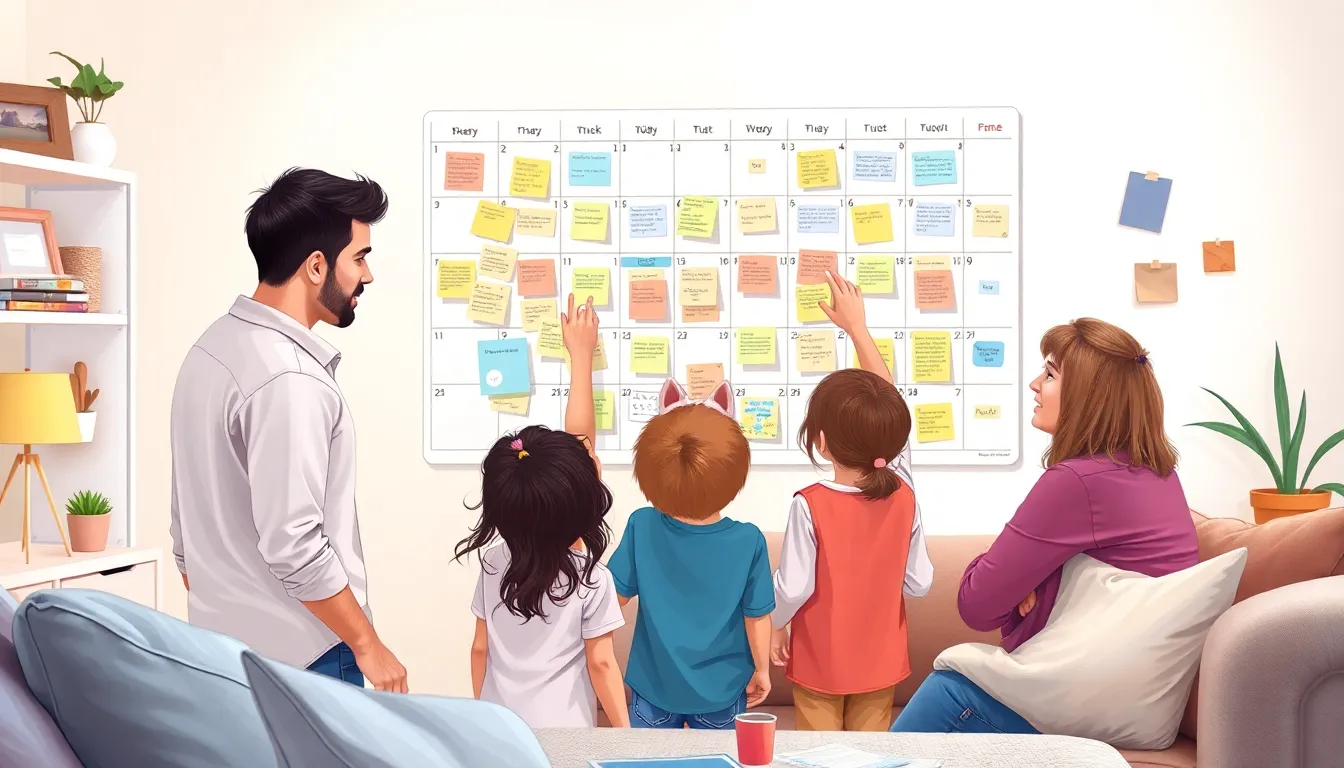In a world where digital adventures beckon and virtual quests await, it’s easy to lose track of time—and reality. Game Overdertoza, with its captivating graphics and endless challenges, can turn even the most disciplined gamer into a couch potato. If the only thing standing between them and a balanced life is a pixelated dragon, it’s time to take action.
Table of Contents
ToggleUnderstanding Game Overdertoza Addiction
Game Overdertoza captivates players with its stunning graphics and engaging challenges. This immersive experience can lead to overindulgence, causing players to drift from their daily responsibilities.
What Is Game Overdertoza?
Game Overdertoza represents a popular immersive video game that draws in players with its intricate design and exciting gameplay elements. Players embark on adventures that require strategic thinking and quick reflexes. Its appeal often lies in the sense of achievement and community among players. Gamers immerse themselves in this world, often spending hours navigating challenges and levels.
Signs of Addiction
Several indicators can signal Game Overdertoza addiction. Constant thoughts about the game or planning gameplay during non-gaming hours often emerge. Neglecting responsibilities at work or home becomes evident when gaming takes precedence. Social interactions may diminish as players isolate themselves to engage further in the game. Withdrawal symptoms can arise when trying to reduce playtime, showcasing the game’s hold over them. Prioritizing in-game goals over real-life achievements highlights an increasing addiction, necessitating an assessment of gaming habits.
Assessing Your Situation

Assessing the situation involves understanding personal habits and behaviors regarding Game Overdertoza. Recognizing when gaming becomes a problem starts with self-evaluation.
Identifying Triggers
Identifying triggers plays a crucial role in addressing gaming addiction. Certain situations, feelings, or environments may lead to the urge to play excessively. Stressful moments often push players towards gaming for escapism. Social situations might also trigger the desire to play, where gaming serves as a distraction from real-life interactions. By noting specific circumstances that precede excessive gaming sessions, players can identify patterns that contribute to their addiction.
Evaluating Consequences
Evaluating consequences helps clarify the impact of gaming on daily life. Losing track of time while playing can interfere with responsibilities. Regularly neglecting work or personal commitments often leads to undesirable outcomes. Relationships may suffer due to decreased social interaction. Players should consider how their gaming habits affect emotional well-being, physical health, and productivity. Recognizing these consequences emphasizes the need to make changes for a healthier lifestyle.
Developing a Recovery Plan
Creating a recovery plan involves a structured approach to overcoming Game Overdertoza addiction. This process helps individuals regain control over their gaming habits.
Setting Realistic Goals
Establishing realistic goals is essential for recovery. Start by defining specific, measurable objectives, such as reducing gaming time by one hour per week. Acknowledge achievements along the way to foster motivation. Break long-term goals into smaller, achievable milestones. A player might aim to play only on weekends, allowing for engagement while balancing life’s responsibilities. Regularly reassess these goals for effectiveness and adjust as necessary. Progress hinges on clear, actionable objectives that maintain focus on recovery.
Creating a Balanced Schedule
Creating a balanced schedule promotes healthier gaming habits. Prioritize responsibilities such as work, school, and social events before scheduling gaming periods. Allocate time for hobbies and social interactions to strengthen relationships outside gaming. Design a daily or weekly planner to visualize commitments and gaming time effectively. Consider implementing gaming limits during the week, allowing longer sessions only during designated times. Striking a balance between gaming and other activities fosters a well-rounded lifestyle and reduces the potential for relapse.
Seeking Support
Support plays a vital role in overcoming Game Overdertoza addiction. Connecting with others can provide motivation and guidance.
Finding a Support Group
Joining a support group can create a sense of community among individuals facing similar challenges. Various organizations focus on gaming addiction, offering resources and shared experiences. These groups often facilitate regular meetings, either in person or online, allowing individuals to discuss their struggles. Participating in these sessions helps members develop coping strategies and gain encouragement from peers. Gamers can find local groups through online searches or dedicated platforms that focus on addiction and recovery.
Involving Friends and Family
Involving friends and family members can enhance the recovery process significantly. Open communication with loved ones fosters understanding and builds a support network. Engaging friends in activities outside gaming helps create new experiences and bonding moments. Family members can also assist in setting boundaries around gaming time. Encouraging honest conversations leads to greater awareness of one’s behavior and fosters accountability. Together, they can establish a balanced lifestyle that encourages shared interests beyond just gaming, which aids in sustaining a healthier gaming habit.
Adopting Healthy Habits
Adopting healthy habits is essential for overcoming Game Overdertoza addiction. Focus shifts from gaming to engaging in various activities that promote well-being.
Engaging in Alternative Activities
Finding hobbies beyond gaming opens new avenues for enjoyment. Activities such as reading, hiking, or joining sports teams can provide fulfilling experiences. Crafting, cooking, or learning a musical instrument can boost creativity and provide joy. Social activities encourage interaction with others, helping to build vital connections. Each new pursuit reduces screen time while enhancing overall satisfaction in life.
Practicing Mindfulness and Stress Relief
Mindfulness techniques significantly support addiction recovery. Engaging in meditation can promote awareness of thoughts and feelings associated with gaming urges. Deep breathing exercises help manage anxiety, creating a sense of calm. Practices like yoga can enhance physical health while focusing the mind, making it easier to resist temptations. Incorporating daily rituals centered on relaxation can foster emotional resilience, contributing to long-term success in overcoming addiction.
Overcoming Game Overdertoza addiction requires commitment and a proactive approach. By recognizing the signs of addiction and understanding personal triggers, individuals can take meaningful steps toward a healthier gaming balance. Developing a structured recovery plan and setting realistic goals are essential for regaining control.
Engaging in alternative activities and adopting mindfulness techniques can significantly reduce the urge to play excessively. Building a support network with friends, family, or support groups fosters accountability and encourages open communication.
Ultimately, embracing new interests and prioritizing well-being will lead to a more fulfilling life beyond the screen, helping players find joy in both gaming and their real-world experiences.






